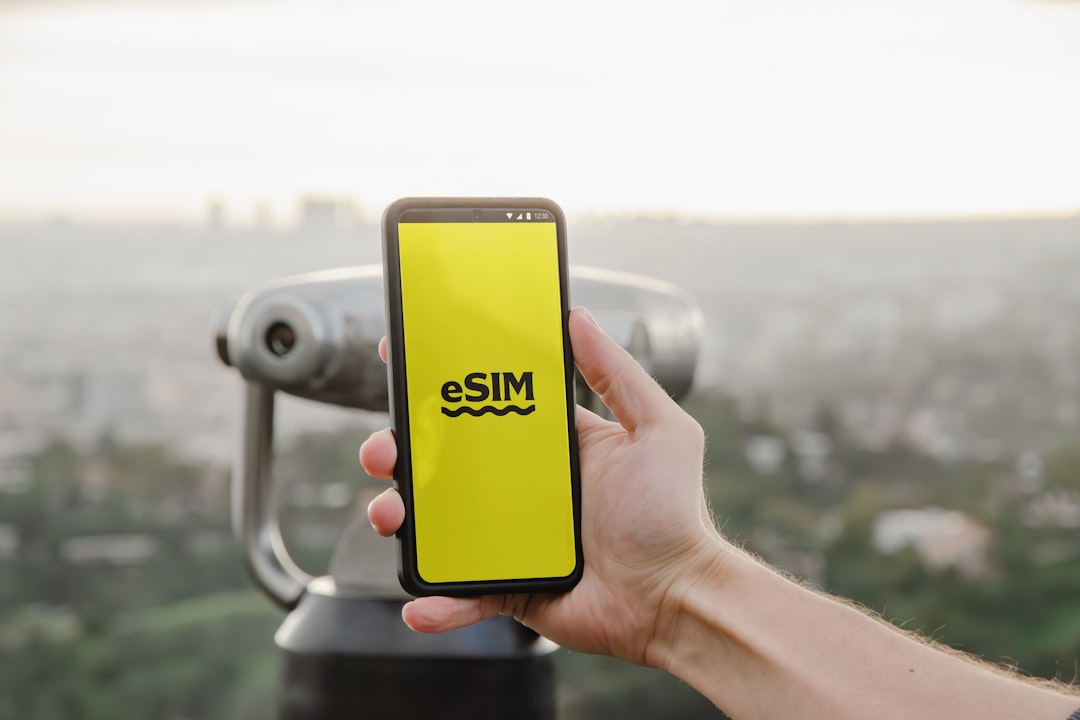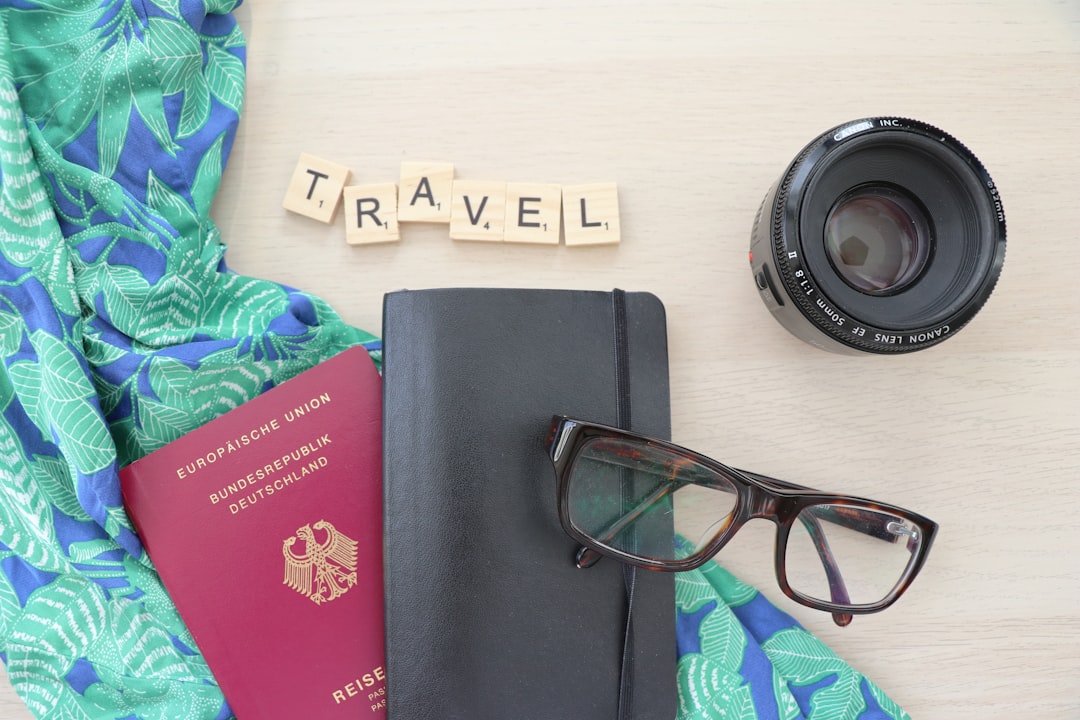Explore Remote Work Hotspots with Simple Permit Processes

Introduction
Remote work has turned the world into a sprawling office with no walls. The freedom to choose a sunrise over a sea, a mountain vista, or a bustling cityscape while logging in for a video call is no longer a fantasy for a handful of freelancers. It is now a realistic lifestyle for millions of digital nomads. What makes a location truly attractive for remote professionals goes beyond Wi‑Fi speed and coffee culture. A clear, uncomplicated permit process can be the deciding factor between a short stay and a year‑long adventure.
This guide explores a curated list of remote‑work hotspots where the visa or digital‑nomad permit is straightforward, the bureaucracy is minimal, and the environment is tailored for productivity and enjoyment. Each destination is examined through the lenses of permit simplicity, cost of living, coworking infrastructure, lifestyle amenities, and practical tips for a smooth transition. Whether you are a seasoned nomad looking for the next base or a newcomer eager to test the waters, these insights will help you make an informed decision and set up your mobile office with confidence.
What Makes a Permit Process “Simple”?
A simple permit process is not defined solely by the number of steps involved. It also includes clarity of information, speed of approval, affordability, and the ability to apply remotely. Below are the key characteristics that we used to evaluate each destination.
- Online Application – The ability to submit the entire application from any country without a mandatory in‑person visit.
- Clear Eligibility Criteria – Transparent income thresholds, required documents, and duration limits that are easy to verify.
- Fast Processing Time – Decisions rendered within a few weeks, allowing nomads to plan trips without long waiting periods.
- Reasonable Fees – Application costs that do not outweigh the savings from a low‑cost destination.
- Renewal Flexibility – Options to extend the stay without having to leave the country or start a new application from scratch.
When a country ticks most of these boxes, it becomes a strong candidate for digital‑nomad life.
Criteria for Choosing a Remote‑Work Hotspot
Beyond the permit itself, a location must support a sustainable remote‑work routine. The following factors were considered when selecting the destinations featured in this guide.
- Internet Reliability – Minimum 25 Mbps download speed for video calls, with a stable connection in coworking spaces and cafés.
- Cost of Living – Accommodation, food, transportation, and leisure activities that align with typical remote‑worker budgets ranging from $1,200 to $2,500 per month.
- Coworking Ecosystem – Availability of modern coworking hubs, community events, and networking opportunities.
- Time‑Zone Compatibility – Overlaps with major business hubs such as North America, Europe, or Asia, depending on the reader’s client base.
- Quality of Life – Safety, healthcare, cultural attractions, outdoor activities, and a welcoming expat community.
Each destination highlighted below satisfies these criteria while offering a visa or permit that is notably straightforward.
Portugal – Madeira
Permit Overview
Madeira introduced the “Digital Nomad Residence Permit” in early 2023. The application can be completed entirely online through the Portuguese Immigration and Borders Service portal. Applicants must demonstrate a minimum monthly income of €1,500, provide proof of remote employment or business ownership, and show a clean criminal record. The permit is granted for one year and can be renewed for up to three additional years.
Cost of Living
Living in Funchal, the capital of Madeira, is considerably cheaper than mainland Portugal. A one‑bedroom apartment in the city center averages €700 per month, while utilities run around €80. Groceries, public transport, and dining out keep the total monthly budget close to €1,200 for a comfortable lifestyle.
Connectivity and Coworking
The island boasts an average broadband speed of 150 Mbps, with multiple fiber‑optic providers. Coworking spaces such as Cowork Madeira and Impact Hub Funchal offer high‑quality desks, meeting rooms, and a vibrant community of entrepreneurs. Many cafés along the waterfront also provide reliable Wi‑Fi.
Lifestyle Highlights
Madeira’s subtropical climate delivers mild temperatures year‑round, making it perfect for outdoor enthusiasts. Hiking trails through the Laurisilva forest, dolphin‑watching tours, and the famous New Year’s fireworks display are just a few of the island’s attractions. The local cuisine, featuring fresh fish and the iconic “espada com banana,” adds a culinary adventure to daily life.
Practical Tips
- Apply for the permit at least six weeks before arrival to allow processing time.
- Open a Portuguese bank account after landing to simplify bill payments.
- Register with the local health service (SNS) for access to public healthcare.
Georgia – Tbilisi
Permit Overview
Georgia’s “Remotely from Georgia” program is designed specifically for digital nomads. The application is a simple online form on the Ministry of Foreign Affairs website. Proof of employment with a minimum monthly income of $2,000, a valid passport, and health insurance are required. The permit grants a 12‑month stay and can be extended for another year without leaving the country.
Cost of Living
Tbilisi offers one of the most affordable urban experiences in Europe. A centrally located studio apartment costs around $400 per month, while utilities are roughly $70. Eating out is inexpensive, with a typical meal at a mid‑range restaurant costing $8. Overall, a nomad can comfortably live on $1,100 to $1,400 per month.
Connectivity and Coworking
Georgia provides an average internet speed of 70 Mbps, with 4G coverage throughout the city. Coworking venues such as Impact Hub Tbilisi, Terminal, and Work&Co offer ergonomic workspaces, high‑speed internet, and regular networking events. Many rooftop cafés also provide a pleasant setting for focused work.
Lifestyle Highlights
Tbilisi blends old‑world charm with a modern, artsy vibe. The city’s historic Old Town, sulfur baths, and vibrant street art scene attract creatives. Nearby, the Caucasus Mountains offer weekend skiing, hiking, and breathtaking scenery. The food culture—featuring khachapuri, khinkali, and local wines—adds a flavorful dimension to daily life.
Practical Tips
- Obtain a local SIM card for reliable data and cheaper calls.
- Use the “TBC Pay” mobile app to manage finances and pay bills.
- Join expat groups on social media to discover hidden gems and community events.
Mexico – Mexico City
Permit Overview
Mexico’s “Temporary Resident Visa” can be adapted for remote work by presenting a contract with a foreign employer and a minimum monthly income of $2,500. The application is submitted at a Mexican consulate abroad or at the National Institute of Migration upon arrival. The visa is initially issued for one year and is renewable for up to four additional years.
Cost of Living
Mexico City offers a range of neighborhoods to suit different budgets. A one‑bedroom apartment in Condesa or Roma costs about $900 per month, while utilities add $100. Groceries, transportation, and dining keep the total monthly expense around $1,800 for a comfortable lifestyle.
Connectivity and Coworking
The capital enjoys an average broadband speed of 120 Mbps, with extensive fiber networks in central districts. Top coworking spaces include WeWork Mexico City, Homework, and The Pool. Many cafés in neighborhoods like La Roma and Polanco provide reliable Wi‑Fi and a relaxed atmosphere.
Lifestyle Highlights
Mexico City is a cultural powerhouse. Museums such as the Museo Nacional de Antropología, historic sites like the Zócalo, and a thriving culinary scene ranging from street tacos to Michelin‑starred restaurants make daily life exciting. The city’s extensive public transport system—including Metro, Metrobús, and bike‑share—facilitates easy navigation.
Practical Tips
- Apply for the visa at the nearest Mexican consulate before travel to avoid processing delays.
- Register with the National Institute of Migration within 30 days of arrival.
- Take advantage of the city’s free cultural events, many of which are hosted in public squares and parks.
Indonesia – Bali
Permit Overview
Indonesia introduced a “Digital Nomad Visa” in 2024, targeting remote workers who earn at least $2,500 per month. The application can be completed online through the Ministry of Manpower portal, requiring proof of employment, a passport copy, and travel insurance. The visa is valid for six months and can be extended for another six months without leaving the island.
Cost of Living
Bali’s cost of living varies by area. In Ubud, a modest one‑bedroom villa with a private pool costs around $800 per month, while in Canggu a similar setup runs about $1,200. Food, transportation, and coworking fees bring the total monthly budget to $1,300 to $1,800, depending on lifestyle choices.
Connectivity and Coworking
Internet speeds in Bali have historically been inconsistent, but major coworking hubs now offer reliable 30‑50 Mbps connections. Popular spaces such as Dojo Bali, Hubud, and Outpost provide fast Wi‑Fi, ergonomic furniture, and community events. Many beachfront cafés also have stable connections for those who prefer a sea view while working.
Lifestyle Highlights
Bali’s spiritual atmosphere, lush rice terraces, and surf‑friendly beaches make it a magnet for creative professionals. Yoga retreats, Balinese festivals, and a strong expat community foster a supportive environment. The island’s cuisine—featuring dishes like nasi goreng, satay, and fresh seafood—adds to the daily enjoyment.
Practical Tips
- Secure a local SIM card with a data plan from providers like Telkomsel or XL Axiata for backup connectivity.
- Obtain travel insurance that covers health and COVID‑19 related incidents, as it is a visa requirement.
- Participate in weekly community meet‑ups at coworking spaces to expand your network.
Costa Rica – Tamarindo
Permit Overview
Costa Rica’s “Rentista Visa” is ideal for digital nomads with a stable income of $2,500 per month. The application can be submitted online through the Dirección General de Migración y Extranjería portal, accompanied by bank statements and proof of remote employment. The visa grants a two‑year stay, with the possibility of renewal.
Cost of Living
Tamarindo, a beach town on the Pacific coast, offers a relaxed lifestyle. A beachfront studio apartment costs about $1,000 per month, while utilities are roughly $120. Food, transportation, and leisure activities bring the average monthly expense to $1,800, making it affordable for many remote workers.
Connectivity and Coworking
The country’s average internet speed is 80 Mbps, with fiber‑optic services available in major tourist areas. Coworking spaces such as Selina Tamarindo, La Ruta, and Pura Vida Co‑Work provide fast Wi‑Fi, comfortable workstations, and a community of travelers. Many cafés along the main boulevard also offer stable connections.
Lifestyle Highlights
Costa Rica’s “pura vida” philosophy translates into a laid‑back, nature‑centric lifestyle. Surfing, zip‑lining, and wildlife tours are readily available. The country’s commitment to environmental sustainability adds an ethical dimension to daily life. The local cuisine, featuring gallo pinto, fresh fruit, and tropical seafood, is both healthy and delicious.
Practical Tips
- Register with the Costa Rican Social Security system (Caja) to access public healthcare.
- Use the “BCR” mobile banking app for easy bill payments and transfers.
- Take advantage of free language exchange meet‑ups to improve Spanish skills.
Thailand – Chiang Mai
Permit Overview
Thailand’s “Smart Visa” was extended in 2024 to include remote workers earning at least $2,000 per month. The application process is handled online through the Thailand Board of Investment portal, requiring proof of employment, a passport copy, and health insurance. The visa is valid for one year and can be renewed for an additional year.
Cost of Living
Chiang Mai is renowned for its affordability. A one‑bedroom apartment in the Old City costs around $350 per month, while utilities are about $50. Food, transportation, and coworking fees keep the total monthly budget near $1,200, allowing for a comfortable yet low‑cost lifestyle.
Connectivity and Coworking
The city offers an average internet speed of 100 Mbps, with many coworking spaces providing even faster connections. Notable venues include Punspace, CAMP, and Mana Co‑Work, each offering ergonomic furniture, high‑speed Wi‑Fi, and regular community events. Numerous cafés in Nimman and the Old City also provide reliable internet.
Lifestyle Highlights
Chiang Mai’s blend of ancient temples, modern cafés, and lush mountains makes it a cultural hub for digital nomads. The city hosts the annual Yi Peng Lantern Festival, cooking classes, and a thriving night market. Outdoor activities such as trekking, mountain biking, and visiting elephant sanctuaries are easily accessible.
Practical Tips
- Obtain a Thai SIM card with a data plan from AIS or TrueMove for uninterrupted connectivity.
- Open a local bank account to simplify rent payments and everyday expenses.
- Join the “Chiang Mai Digital Nomads” Facebook group for event updates and housing leads.
Croatia – Dubrovnik
Permit Overview
Croatia introduced the “Digital Nomad Residence Permit” in 2022. The application can be submitted online via the Ministry of the Interior portal. Applicants must prove a monthly income of €2,200, provide a remote‑work contract, and show health insurance. The permit is valid for one year and can be renewed for up to three years.
Cost of Living
Dubrovnik is more expensive than inland Croatian cities but still reasonable compared to Western Europe. A one‑bedroom apartment in the Old Town costs about €800 per month, while utilities add €100. Food, transportation, and leisure bring the average monthly cost to €1,600 for a comfortable stay.
Connectivity and Coworking
The city enjoys an average broadband speed of 150 Mbps, with several fiber providers. Coworking spaces such as Impact Hub Dubrovnik, Hub 4, and The Hive offer modern workstations, fast internet, and networking events. Many seaside cafés also provide stable Wi‑Fi for those who prefer a view of the Adriatic.
Lifestyle Highlights
Dubrovnik’s historic walls, crystal‑clear waters, and Mediterranean climate attract both culture lovers and beach enthusiasts. The city’s culinary scene features fresh seafood, local wines, and traditional dishes like black risotto. Summer festivals, sailing trips, and hiking trails in the nearby Konavle region add variety to daily life.
Practical Tips
- Register with the local police station within 48 hours of arrival to obtain a residence card.
- Use the “e‑Ugovor” platform for digital signing of contracts and official documents.
- Take advantage of the public ferry network to explore neighboring islands on weekends.
Estonia – Tallinn
Permit Overview
Estonia’s “Digital Nomad Visa” launched in 2020 and remains one of the most streamlined permits in Europe. The online application is processed through the Police and Border Guard Board portal. Proof of remote employment with a minimum monthly income of €3,500, health insurance, and a clean criminal record are required. The visa grants a 12‑month stay, with the possibility of renewal.
Cost of Living
Tallinn offers a balanced cost of living. A centrally located one‑bedroom apartment costs around €900 per month, while utilities run about €120. Food, public transport, and coworking fees bring the total monthly budget to roughly €1,800, making it an attractive option for professionals seeking a European base.
Connectivity and Coworking
Estonia is known for its advanced digital infrastructure. Average internet speed exceeds 200 Mbps, and the country’s e‑Residency program supports seamless online business operations. Coworking spaces such as Lift99, Garage48, and The Factory provide high‑tech environments, fast Wi‑Fi, and frequent hackathons.
Lifestyle Highlights
Tallinn’s medieval Old Town, vibrant design district, and numerous parks create a harmonious blend of old and new. The city hosts cultural events like the Tallinn Music Week and the Tallinn Old Town Days. Outdoor enthusiasts can explore nearby islands, hike in the Lahemaa National Park, or enjoy winter sports during the colder months.
Practical Tips
- Apply for the e‑Residency card before arrival if you plan to run a business in Estonia.
- Use the “e‑Tax” system for straightforward tax filing and compliance.
- Join the “Tallinn Start‑Up Community” meet‑ups to connect with local entrepreneurs.
Uruguay – Montevideo
Permit Overview
Uruguay’s “Remote Work Visa” was introduced in 2023 to attract foreign professionals. The application is completed online through the Ministry of Foreign Relations portal. Applicants must show a monthly income of $2,300, a remote‑work contract, and health insurance. The visa allows a 12‑month stay with a possible extension for another year.
Cost of Living
Montevideo offers a moderate cost of living compared to other South American capitals. A one‑bedroom apartment in the Ciudad Vieja district costs around $700 per month, while utilities add $90. Food, transport, and leisure activities keep the total monthly expense near $1,500, providing a comfortable lifestyle.
Connectivity and Coworking
The capital’s average internet speed is 80 Mbps, with fiber‑optic coverage in most neighborhoods. Coworking hubs such as Sinergia, Co‑Work Montevideo, and The Hub offer fast Wi‑Fi, meeting rooms, and community events. Many cafés along the waterfront also provide reliable connections for freelancers.
Lifestyle Highlights
Montevideo blends European architecture with a relaxed South American vibe. The city’s beachfront promenade, Mercado del Puerto, and tango festivals create a lively cultural scene. Outdoor activities include cycling along the Rambla, sailing on the Río de la Plata, and exploring the nearby wine regions of Canelones.
Practical Tips
- Register with the Uruguayan National Institute of Social Security (BPS) for access to public healthcare.
- Open a local bank account with Banco República for easy bill payments.
- Attend the monthly “Montevideo Tech Meet‑Up” to network with fellow digital nomads.
Barbados – Bridgetown
Permit Overview
Barbados launched the “Welcome Stamp” in 2021, a visa specifically for remote workers. The application is processed online via the Barbados Immigration Department website. Applicants must prove a minimum annual income of $50,000, provide health insurance, and submit a remote‑work contract. The stamp grants a 12‑month stay and can be renewed for another year.
Cost of Living
Barbados is one of the pricier Caribbean destinations. A one‑bedroom apartment in Bridgetown costs around $1,400 per month, while utilities add $150. Food, transportation, and leisure bring the total monthly budget to about $2,300, making it suitable for those with a higher income bracket.
Connectivity and Coworking
Internet speeds average 100 Mbps, with several providers offering fiber connections. Coworking spaces such as The Co‑Working Hub, The Lighthouse, and The Office provide modern workstations, fast Wi‑Fi, and a community of expatriates. Many beachfront cafés also have reliable connections for those who enjoy working with a sea view.
Lifestyle Highlights
Barbados offers pristine beaches, vibrant music festivals, and a rich colonial heritage. Activities range from snorkeling in Carlisle Bay to exploring historic Bridgetown and its Garrison. The island’s culinary scene blends Caribbean flavors with British influences, featuring dishes like flying fish and cou‑cou.
Practical Tips
- Obtain travel insurance that covers health and emergency evacuation, as it is a requirement for the Welcome Stamp.
- Use the “Barbados Government Services” app for paying utilities and taxes.
- Join the “Barbados Digital Nomads” Facebook group for housing leads and social events.
How to Choose the Right Hotspot for You
Selecting the ideal remote‑work destination involves balancing personal preferences with practical considerations. Here are steps to help you decide:
- Define Your Priorities – Identify what matters most: cost, climate, cultural experiences, proximity to clients, or adventure opportunities.
- Assess Income Requirements – Review the minimum income thresholds for each visa to ensure you meet the criteria without stress.
- Test Connectivity – Before committing, search for recent reviews of internet speed and reliability in your prospective city.
- Calculate Total Budget – Include rent, utilities, coworking fees, food, transportation, and visa costs to get a realistic monthly estimate.
- Check Healthcare Access – Verify whether the country provides public healthcare for residents or if you need private insurance.
- Read Community Feedback – Join online forums, subreddits, or Facebook groups dedicated to digital nomads in the target location. First‑hand experiences can reveal hidden challenges.
By systematically evaluating each factor, you can narrow down the list to the destinations that align best with your work style and lifestyle aspirations.
Preparing for the Move
Once you have chosen a hotspot, the transition becomes smoother with proper preparation. Below is a checklist that applies to most of the locations discussed.
- Passport Validity – Ensure your passport is valid for at least six months beyond the intended stay.
- Financial Documentation – Gather recent bank statements, pay slips, or freelance contracts that demonstrate the required income.
- Health Insurance – Purchase a policy that meets the visa’s coverage requirements and includes medical evacuation.
- Digital Backups – Store copies of all important documents in a secure cloud service.
- Vaccination Records – Some countries may require proof of certain vaccinations; check the latest health advisories.
- Local SIM Card – Plan to buy a local SIM upon arrival for affordable data and calls.
- Banking Setup – Research the process for opening a local bank account; many countries allow online applications for residents.
- Accommodation Booking – Reserve a short‑term stay (e.g., Airbnb or serviced apartment) for the first few weeks while you search for a longer‑term lease.
Following this checklist reduces the likelihood of unexpected hurdles and allows you to focus on productive work and cultural immersion.
Maintaining Productivity on the Road
Even the most beautiful setting can become a distraction without proper habits. Here are strategies to stay efficient while enjoying the perks of remote‑work travel.
- Establish a Routine – Set consistent work hours that align with your clients’ time zones.
- Create a Dedicated Workspace – Use a coworking desk or a quiet corner of your accommodation to signal “work mode.”
- Leverage Time‑Blocking – Allocate specific blocks for deep work, meetings, and personal exploration.
- Use Collaboration Tools – Keep communication seamless with Slack, Microsoft Teams, or Zoom.
- Set Boundaries – Inform friends and locals about your work schedule to minimize interruptions.
- Take Regular Breaks – Follow the Pomodoro technique or a similar method to maintain focus.
- Stay Active – Incorporate short walks, yoga, or local sports to keep energy levels high.
By integrating these practices, you can enjoy the lifestyle benefits of each hotspot without sacrificing professional performance.
Community and Networking
One of the greatest advantages of digital‑nomad hubs is the built‑in community of like‑minded professionals. Engaging with fellow remote workers can lead to collaborations, mentorship, and lasting friendships.
- Attend Meet‑Ups – Most coworking spaces host weekly or monthly networking events.
- Join Online Groups – Platforms such as Facebook, Reddit, and Discord have active channels for each city.
- Participate in Workshops – Many hubs offer skill‑building sessions, from coding bootcamps to language exchanges.
- Volunteer Locally – Contributing to community projects can deepen cultural immersion and expand your network.
Investing time in community activities enriches both your personal life and professional opportunities.
Safety and Legal Considerations
While the destinations highlighted are generally safe for expatriates, it is essential to stay informed about local regulations and customs.
- Know Local Laws – Familiarize yourself with rules regarding work permits, public behavior, and transportation.
- Keep Emergency Numbers Handy – Save the local emergency services number in your phone.
- Secure Your Belongings – Use lockable luggage and consider a portable safe for valuables.
- Monitor Travel Advisories – Check updates from your home country’s foreign affairs department.
Being proactive about safety ensures a stress‑free experience in your chosen remote‑work haven.
Future Trends in Remote‑Work Hotspots
The landscape of digital‑nomad destinations continues to evolve. Emerging trends that may shape future choices include:
- Green Visas – Countries are launching environmentally focused permits that encourage sustainable tourism and remote work.
- Hybrid Residency Models – Some nations are experimenting with combined tourism‑work visas that allow longer stays without full residency.
- Tech‑Driven Infrastructure – Expansion of 5G networks and satellite internet services (e.g., Starlink) will make even remote islands viable for high‑speed work.
- Co‑Living Communities – Integrated living‑and‑working spaces are gaining popularity, offering a blend of accommodation, coworking, and social activities under one roof.
Keeping an eye on these developments can help you stay ahead of the curve and discover the next hidden gem for remote work.
Conclusion
Choosing a remote‑work hotspot with a simple permit process can transform the way you live and work. From the volcanic cliffs of Madeira to the historic walls of Dubrovnik, each destination offers a unique blend of culture, connectivity, and community, all backed by visas or permits that are designed for ease of application and renewal.
By evaluating income requirements, cost of living, internet reliability, and lifestyle amenities, you can select a base that not only supports your professional responsibilities but also enriches your personal growth. Follow the preparation checklist, adopt productivity habits, and immerse yourself in the local community to make the most of your nomadic journey.
The world is now a series of work‑friendly islands waiting to be explored. With the right permit in hand, the next sunrise could be your new office view. Safe travels and happy working!
Random Posts

Mastering Nomad Taxes and Residency Strategies
Learn how to pinpoint your tax residency, dodge double taxation, and choose the friendliest jurisdictions so you can travel freely while keeping your finances compliant and optimized
2 months ago

Thriving on the Move Mental Wellness for Digital Nomads
Discover how digital nomads can turn constant travel into mental strength with practical habits, mindset shifts, and community tools that keep stress, anxiety, and loneliness at bay.
2 months ago

Savvy Nomad Handbook to Global Cities and Low Cost Flights
Discover how to choose budget-friendly cities for remote work and unlock low-cost flight hacks. This handbook gives practical data, tips and routes to balance productivity, adventure and savings.
1 week ago

Nomad Friendly Cities Ranked with Insider Transportation Tips
Discover the top nomad-friendly cities, ranked by internet, cost, safety and more, plus local transportation hacks, from hidden bike lanes to cheap ride-hail codes, that turn any destination into a productive remote-work base.
2 days ago

Remote Work Paradise Latin America Top Picks
Explore Latin America’s best remote work havens with fast internet, low cost, coworking hubs and rich culture, ideal spots for digital nomads seeking work and adventure.
1 week ago
Latest Posts

Essential Software Every Remote Professional Should Use
Master remote work with essential tools: instant messaging like Slack, high definition video calls such as Zoom, and asynchronous voice apps. Streamline communication, stay connected and boost productivity.
1 day ago

Mastering Remote Work Productivity for Digital Nomads and Freelancers
Learn proven habits, tools, and tactics that help digital nomads and freelancers stay focused, deliver quality work, and maintain a sustainable lifestyle while traveling the world.
1 day ago

Tech‑Friendly European Towns Perfect for Remote Living
Discover Europe’s best small towns where fast internet, affordable living and vibrant tech communities let you work remotely while soaking up historic charm, lakeside views or mountain air.
1 day ago